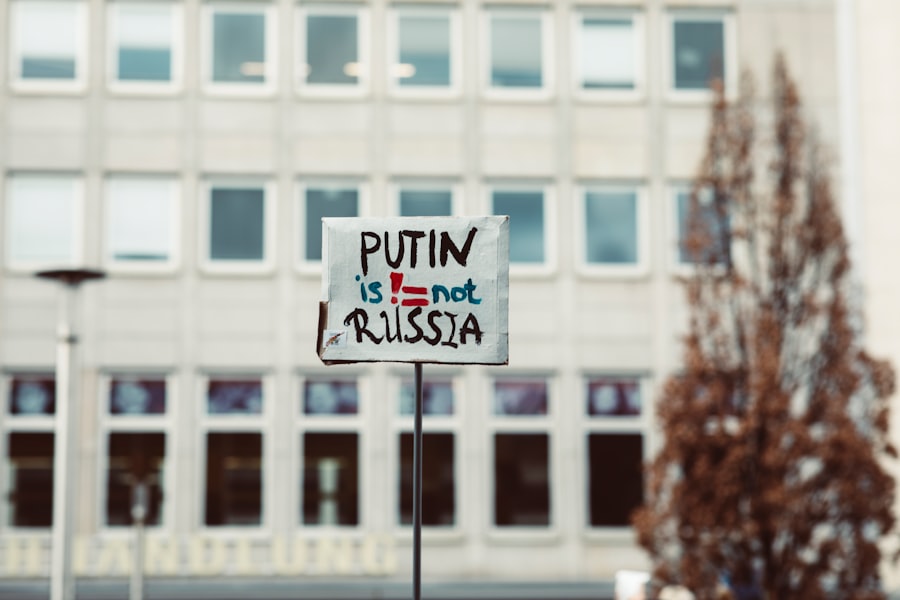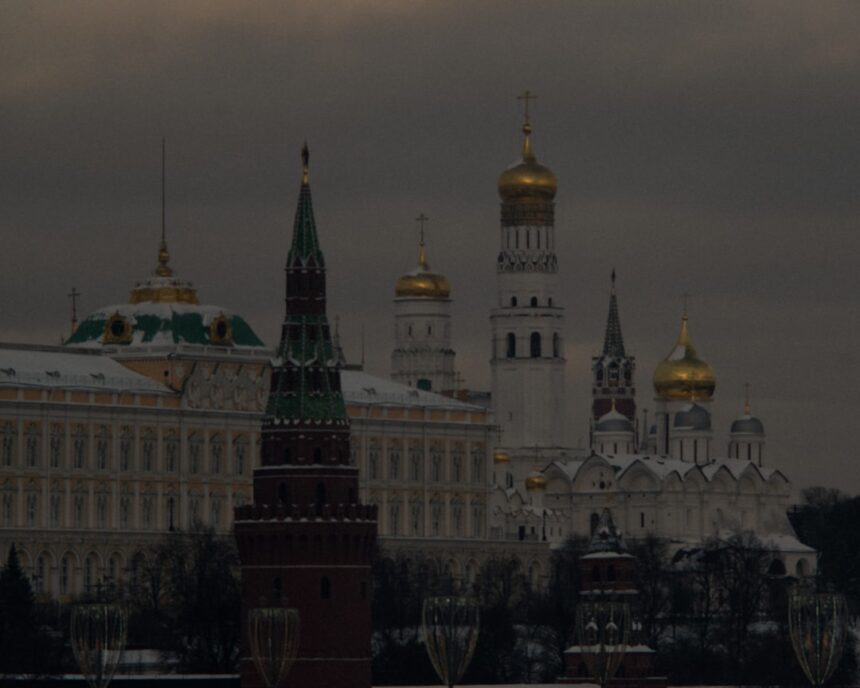The history of Russian intelligence is a complex tapestry woven through centuries of political intrigue, warfare, and espionage. From the early days of the Tsarist regime, where rudimentary forms of intelligence gathering were employed to protect the state, to the sophisticated networks established during the Soviet era, Russian intelligence has continually adapted to meet the demands of its time. The establishment of the Cheka in 1917 marked a significant turning point, as it laid the groundwork for a centralized intelligence apparatus that would evolve into the KGThis organization not only focused on internal security but also expanded its reach into foreign intelligence operations, reflecting the geopolitical ambitions of the Soviet Union.
As the Cold War unfolded, Russian intelligence became synonymous with espionage and counterintelligence on a global scale. The KGB’s operations were characterized by a blend of human intelligence (HUMINT) and signals intelligence (SIGINT), allowing it to infiltrate Western governments and gather critical information. The dissolution of the Soviet Union in 1991 brought about a seismic shift in the landscape of Russian intelligence.
The KGB was dismantled, and its functions were divided among several agencies, including the FSB and SVR. This transition marked a new era where Russian intelligence had to navigate a rapidly changing world, adapting to new threats and opportunities in a post-Cold War environment.
Key Takeaways
- Russian intelligence has evolved over time, adapting to new technologies and geopolitical challenges.
- The strategic objectives of Russian intelligence include gathering information, influencing international affairs, and conducting cyber warfare.
- Russian intelligence agencies are structured and organized to carry out a wide range of operations, with the FSB and SVR playing key roles.
- Modern tools and techniques used by Russian intelligence include cyber espionage, disinformation campaigns, and influence operations.
- Russian intelligence is heavily involved in cyber warfare, using advanced techniques to target foreign governments and organizations.
Strategic Objectives of Russian Intelligence
The strategic objectives of Russian intelligence are deeply intertwined with the nation’s broader geopolitical goals. At its core, Russian intelligence aims to safeguard national security, protect state secrets, and ensure the stability of the regime. This involves not only gathering information on potential adversaries but also understanding global trends that could impact Russia’s interests.
The intelligence community plays a crucial role in shaping foreign policy decisions, providing insights that inform military strategies and diplomatic initiatives. Moreover, Russian intelligence seeks to project power beyond its borders. This includes not only traditional espionage activities but also efforts to influence political outcomes in other countries.
By leveraging intelligence capabilities, Russia aims to create a favorable international environment that aligns with its strategic interests. This dual focus on defense and influence underscores the multifaceted nature of Russian intelligence operations, which are designed to adapt to an ever-evolving global landscape.
The Structure and Organization of Russian Intelligence Agencies

The structure of Russian intelligence agencies reflects a complex hierarchy designed to address various aspects of national security. The Federal Security Service (FSB) is primarily responsible for domestic security and counterintelligence, while the Foreign Intelligence Service (SVR) focuses on international espionage. Additionally, the Main Directorate of the General Staff (GRU) oversees military intelligence operations, further diversifying the capabilities within Russia’s intelligence community.
Each agency operates with a degree of autonomy but is ultimately coordinated under the auspices of the President of Russia. This centralized control allows for streamlined decision-making and ensures that intelligence efforts align with national priorities. The collaboration between these agencies is crucial for effective information sharing and operational coordination, particularly in high-stakes situations where timely intelligence can make a significant difference.
Modern Tools and Techniques Used by Russian Intelligence
| Tool/Technique | Description |
|---|---|
| Cyber Espionage | Using malware and hacking to gain unauthorized access to sensitive information. |
| Social Media Manipulation | Spreading disinformation and propaganda through social media platforms. |
| Advanced Persistent Threats (APTs) | Sophisticated, long-term cyber attacks targeting specific organizations or individuals. |
| Open Source Intelligence (OSINT) | Gathering information from publicly available sources such as news, social media, and websites. |
| Deepfake Technology | Creating realistic fake videos or audio recordings to deceive targets. |
In an age defined by rapid technological advancements, Russian intelligence has embraced modern tools and techniques to enhance its operational effectiveness. The integration of advanced surveillance technologies, data analytics, and artificial intelligence has transformed traditional methods of intelligence gathering. For instance, satellite imagery and drone surveillance provide real-time insights into military movements and geopolitical developments, allowing for more informed decision-making.
Moreover, cyber capabilities have become a cornerstone of modern Russian intelligence operations. The ability to infiltrate computer networks and gather sensitive information has revolutionized espionage tactics. Cyber tools enable Russian operatives to conduct reconnaissance on foreign governments, corporations, and critical infrastructure, often without detection.
This shift towards digital espionage reflects a broader trend in which traditional boundaries of intelligence work are increasingly blurred by technological innovation.
Cyber Warfare and Russian Intelligence
Cyber warfare represents one of the most significant challenges facing global security today, and Russian intelligence has emerged as a key player in this domain. The country’s cyber capabilities are not merely defensive; they are often employed as offensive tools to achieve strategic objectives. By targeting foreign governments, financial institutions, and critical infrastructure, Russian intelligence seeks to disrupt adversaries while simultaneously projecting power on the global stage.
The use of cyber warfare has allowed Russia to engage in asymmetric conflict, where conventional military strength may not be feasible or desirable. Operations such as the interference in the 2016 U.S. presidential election exemplify how cyber tactics can be employed to influence political outcomes without direct confrontation.
This approach underscores the importance of cyber capabilities within Russian intelligence’s broader strategy, as it seeks to exploit vulnerabilities in adversaries while minimizing risks associated with traditional military engagements.
Russian Intelligence’s Influence Operations

Influence operations have become a hallmark of Russian intelligence strategy in recent years. These operations aim to shape public opinion, manipulate political discourse, and undermine trust in democratic institutions across various countries. By leveraging social media platforms and other communication channels, Russian operatives disseminate disinformation and propaganda that align with their strategic objectives.
The sophistication of these influence operations is evident in their ability to exploit existing societal divisions within target countries. By amplifying polarizing narratives and fostering discord, Russian intelligence seeks to weaken adversaries from within. This approach not only serves immediate tactical goals but also contributes to long-term strategic objectives by destabilizing regions that may pose a threat to Russian interests.
Russian Intelligence and Disinformation Campaigns
Disinformation campaigns are a critical component of Russian intelligence’s influence operations. These campaigns involve the deliberate spread of false or misleading information designed to confuse, mislead, or manipulate public perception. By creating an environment where truth becomes subjective, Russian operatives can effectively undermine trust in media institutions and governmental authorities.
The use of state-sponsored media outlets and online platforms allows for the rapid dissemination of disinformation on a global scale. High-profile examples include efforts to sow discord during elections in various countries or to promote narratives that align with Russia’s geopolitical interests. The effectiveness of these campaigns lies in their ability to exploit cognitive biases and emotional responses, making it challenging for audiences to discern fact from fiction.
Russian Intelligence’s Role in International Affairs
Russian intelligence plays a pivotal role in shaping the country’s approach to international affairs. By providing critical insights into global developments, these agencies inform policy decisions that impact Russia’s standing on the world stage. Intelligence assessments help identify emerging threats and opportunities, guiding diplomatic efforts and military strategies alike.
Furthermore, Russian intelligence often engages in covert operations that align with broader foreign policy objectives. Whether through supporting proxy groups in conflict zones or conducting espionage against rival nations, these actions reflect a calculated approach to advancing Russia’s interests abroad. The interplay between intelligence activities and diplomatic initiatives underscores the importance of a cohesive strategy that leverages all available tools to achieve national goals.
Challenges and Threats Faced by Russian Intelligence
Despite its formidable capabilities, Russian intelligence faces numerous challenges and threats that could undermine its effectiveness. One significant challenge is the increasing sophistication of adversary counterintelligence measures. As other nations enhance their own intelligence capabilities, they become more adept at detecting and thwarting Russian operations.
Additionally, internal issues such as corruption within agencies can hinder operational effectiveness and erode public trust in intelligence institutions. The need for modernization also poses challenges; as technology evolves rapidly, maintaining cutting-edge capabilities requires substantial investment and adaptation. These factors contribute to an environment where Russian intelligence must continuously evolve to remain relevant amidst shifting geopolitical dynamics.
International Response to Russian Intelligence Activities
The international community has responded to Russian intelligence activities with a mix of condemnation, sanctions, and countermeasures aimed at mitigating perceived threats. Countries targeted by disinformation campaigns or cyberattacks have sought to bolster their defenses through enhanced cybersecurity measures and public awareness campaigns about misinformation. Moreover, alliances such as NATO have increased cooperation among member states to share intelligence and coordinate responses to threats posed by Russian activities.
Diplomatic efforts have also been made to address concerns over espionage and influence operations through dialogue and negotiation channels. However, these responses often face challenges due to differing national interests and varying levels of commitment among allies.
The Future of Russian Intelligence
Looking ahead, the future of Russian intelligence will likely be shaped by ongoing technological advancements and evolving geopolitical landscapes. As cyber capabilities continue to expand, Russian intelligence will need to adapt its strategies to address emerging threats while capitalizing on new opportunities for information gathering. Moreover, as global power dynamics shift, Russia may increasingly rely on unconventional methods of influence and coercion to assert its interests on the world stage.
The interplay between traditional espionage practices and modern technological innovations will define how Russian intelligence navigates an increasingly complex international environment. Ultimately, the ability to remain agile and responsive will be crucial for ensuring that Russian intelligence continues to play a significant role in shaping both national security policy and international relations in the years to come.




